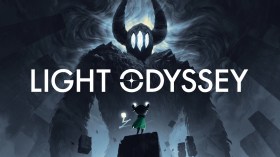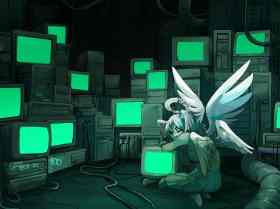Capcom’s sci-fi shooter Pragmata was announced several years ago but has been scarcely seen in the time since. Thankfully, Summer Game Fest 2025 was finally the time for people to not only see it again with a stylish new trailer but also get their hands on it for the first time. Pragmata is a real game, indeed, and not mere vapourware; it ended up being one of my biggest surprises at the show.
I got to play over 20 minutes of the game’s opening mission, and I’m relieved that Pragmata is not only a unique and unconventional action game with some unusual hooks, but it’s also an exciting and visually stunning game to dive into. The short demo I played gave me a glimpse of its sci-fi setting, and a slick blend of third-person shooting combat and real-time hacking gameplay. I’m already eager to see more of the game.





